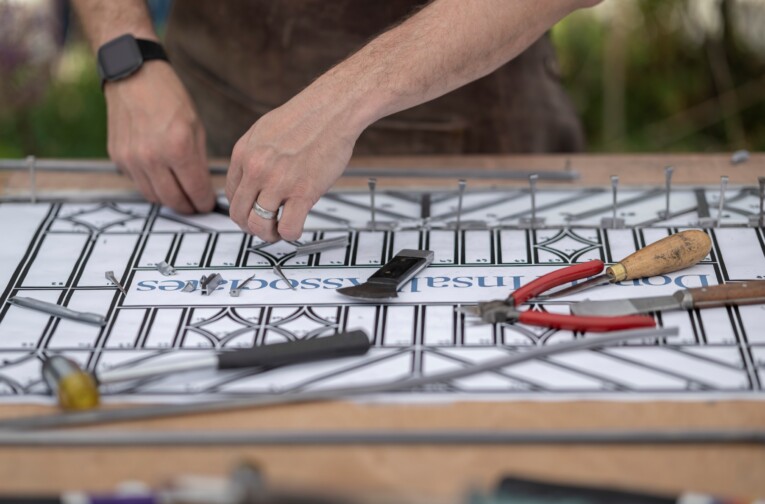Hive Mind: Nurturing Tomorrow’s Conservation Experts
- | Chloe Sheward
Training to become an architect via the ‘traditional route’ is a well-trodden and familiar path. When I joined Insall four years ago, I was pleased to hear how Insall supports the various alternate routes to qualification. Joining the Rochdale Town Hall team and working with our apprentice architect was a chance to see how ‘learning on the job’ with lived experience can be equally rewarding. Working alongside people with different backgrounds and routes into practice appeals to me and is why I enjoy working in the construction industry.
As a practice we support the Blueprint For All and RIBA mentoring schemes; I have been participating in both for a year now alongside colleagues from across the UK. Speaking with my mentees about why they had signed up and what they wanted to get out of it, I was encouraged to know that I could learn from them whilst also helping them. Through the process, it became clear how mentoring isn’t just about supplementing learning about the industry from a course or reading a book; more so, it can be how to draw confidence from hearing how different experiences from other related sectors have transferable skills – knowing how to apply them and when is the more challenging part. As one mentee put it:
In-house training: learning from the ‘hive mind’
I was lucky to be able to join the Insall in-house conservation course – co-ordinated by our former director Peter Riddington – which supports more junior members of the team by increasing their specialist conservation knowledge. What is special about the buildings we work with is that they are as different and unique as we are. However, the ‘hive mind’ of 140 passionate, like-minded colleagues will ensure we can identify the similarities and develop appropriate strategic approaches to problems founded on this wealth of conservation expertise.
The course helps develop a cohort of next-generation thought leaders from our early-career architects and heritage consultants across the practice. It also stimulates those organic connections across the practice for us to share and receive knowledge and experience whilst thoroughly embedding our ‘living buildings’ philosophy from those who helped to establish and enhance this ethos over the past 65 years.
In addition to our routine CPDs, available to everyone, the practice actively encourages a range of targeted courses and studies. For example, I have been on a BIM training course this week, and I look forward to furthering my understanding of retrofitting dwellings later in the year.
Finally, each year, the whole practice comes together for a training day; it’s a chance to learn practical skills and have a go at some of the crafts that we often observe but may not have tried before. Getting your hands dirty is a great way to thoroughly understand what you are asking others to do and to empathise with quite how hard it is to do some of the things we specify! This year, we visited Kelmarsh Hall, and I especially enjoyed making our own piece of leaded glass and carving letters in stonework.
Read the full 2023 Review here
